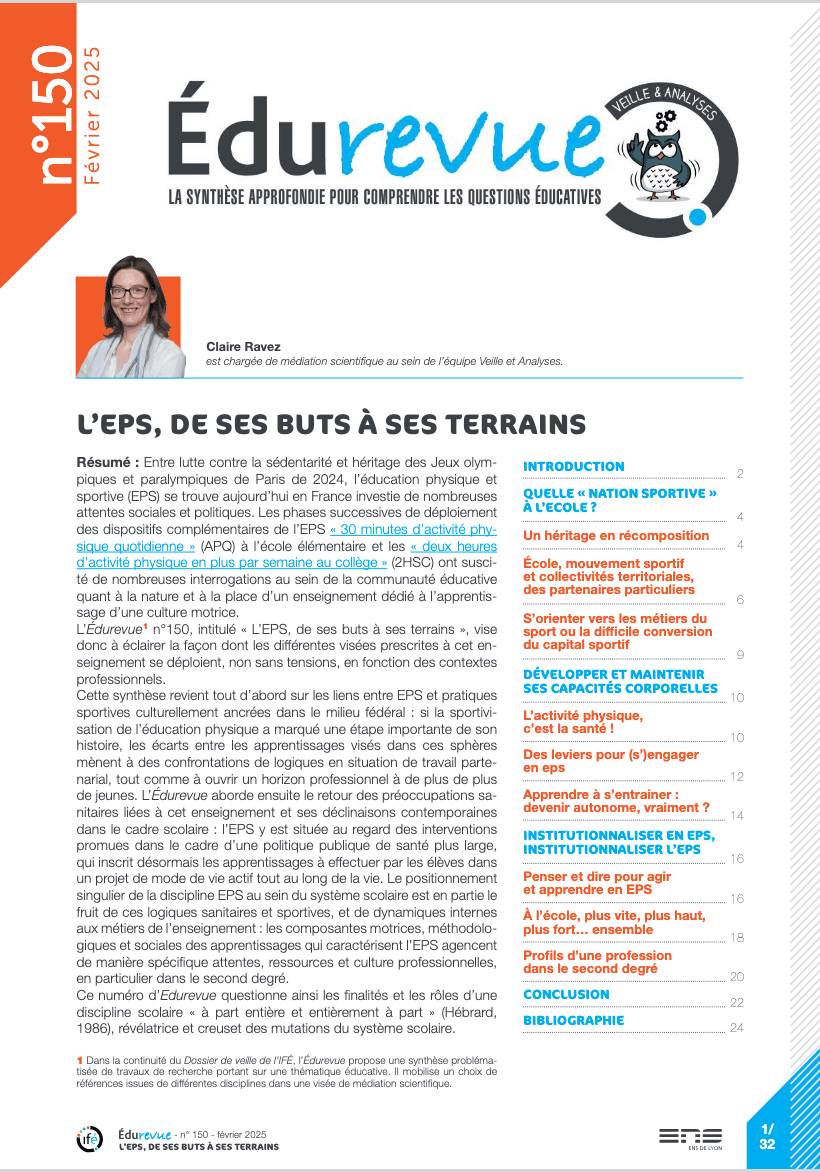The coordination-cooperation dynamic within the educational environment : An ethnography of collective work between schools for priority education
This thesis aims at assessing collective work effects between teachers from elementary and middle school on the growth of their common teaching practices. Historically known for decreasing academic failure in priority education networks, collective work between those schools were reinforced in 2014 by the Priority education Refoundation policy. This gives 3rd cycle teachers (5th, 6th and 7th grade in US / Years 6, 7 and 8 in UK) numerous teamwork tools that strive for bringing their teaching practices closer and further. The thesis questions the link between the implementation of the prescribed collective work and the development of working approaches shared by 3rd cycle teachers. It scrutinizes this relation in terms of coordination and cooperation, by articulating practical sociology of action and work approach via an activity analysis. It is not only about showcasing the conditions of outputting collective norms, but also about identifying resources from the work environment that enable teachers to apply the recommended collective work. The ethnographic investigation (observations/interviews), carried out in two different priority education networks, studied the work of teachers from elementary and middle school, pilots and coordinators within the collective work scheme between schools. The thesis highlights the decisive role the organization of work and public politicians have on the development of teachers’ work approach and on the success of a coordinated collective action within provisions. It also pinpoints the conditions to setting up a teachers’ work collective.












